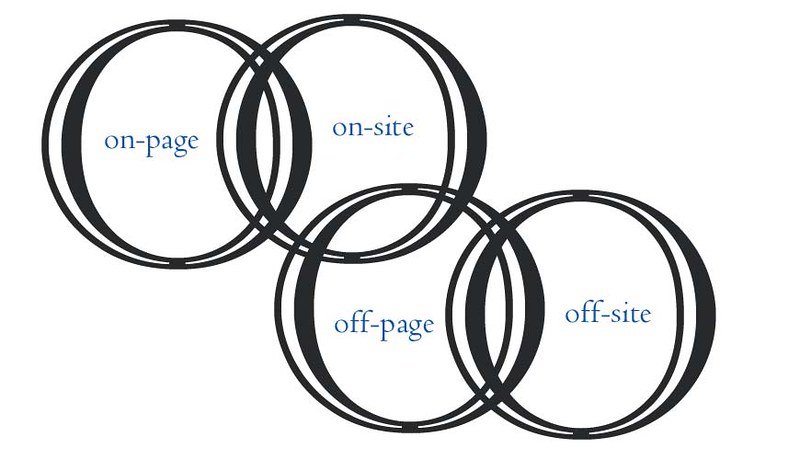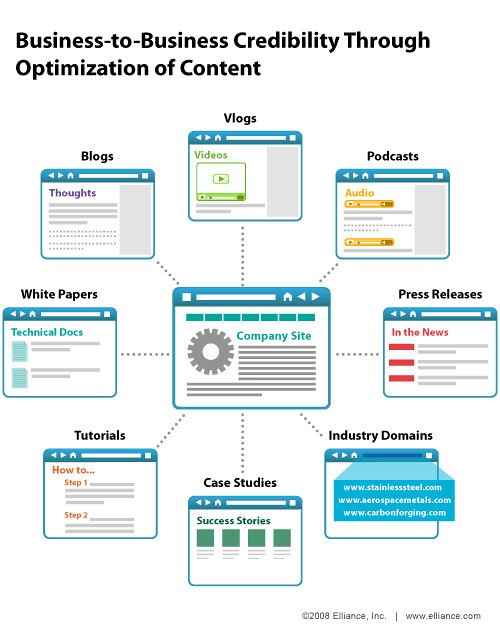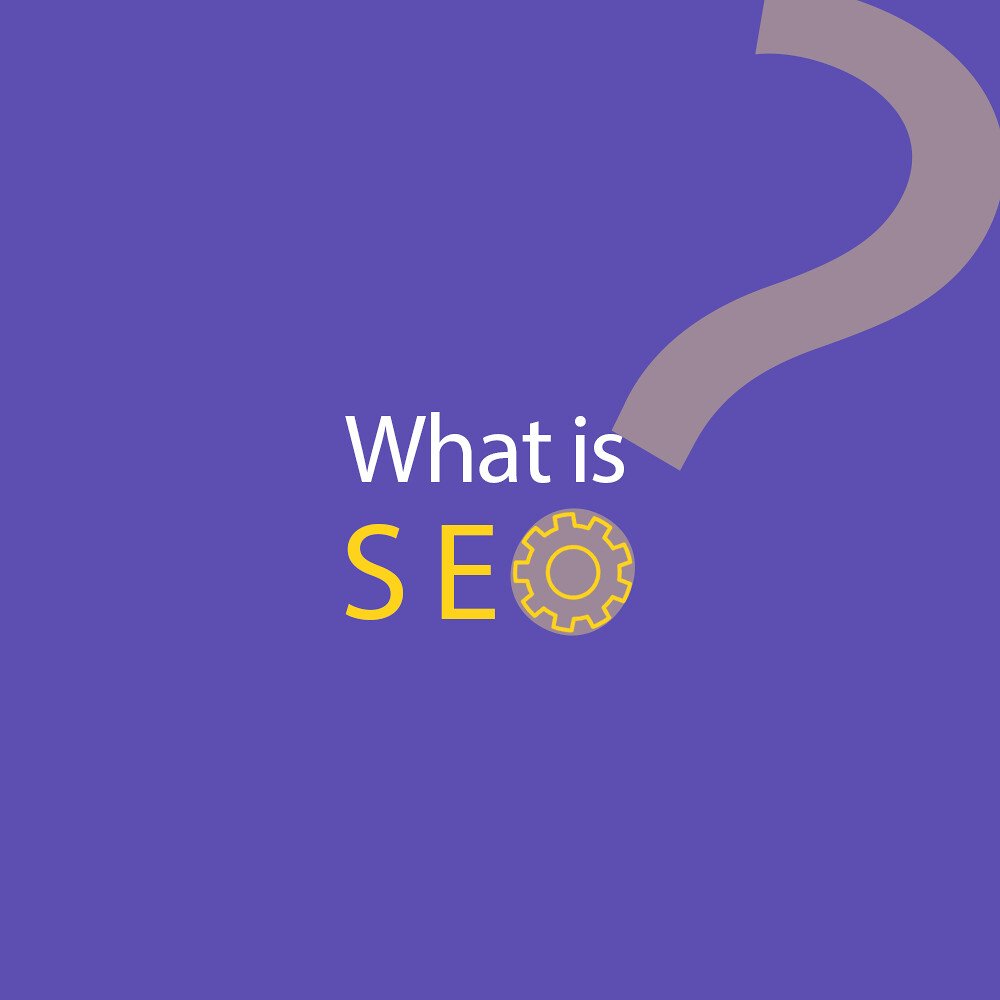Step into the enchanting world of On-Page SEO, where every web page has the ability to cast a spell on search engines, capturing their attention and whisking them away to the top of search results. But wait! Behind this seemingly mystical process lies a methodical and decipherable science. In this article, we will unravel the secrets behind the magical art of On-Page SEO, demystifying its complexities and shedding light on the enchantments that propel websites to online success. Prepare to leave behind the haze of confusion as we embark on a journey to demystify the captivating realm of On-Page SEO. No wands necessary, just an open mind and a thirst for knowledge. Let the unveiling of the enchantment begin!
Table of Contents
- Understanding the Foundations: Key Elements of On-Page SEO
- Deep Dive into Content Optimization: Strategies for Improved Rankings
- Unveiling the Code: Technical SEO Techniques for Enhanced Visibility
- Unlocking Success: Practical On-Page SEO Tips and Best Practices
- Q&A
- In Conclusion

Understanding the Foundations: Key Elements of On-Page SEO
When it comes to the enchanted realm of digital marketing, one of the most mystical concepts that beginners often struggle with is on-page SEO. But fear not! We are here to unravel the magic and demystify this sorcery for you. Let’s dive into the key elements that lay the foundation of on-page SEO, unlocking the secrets to boosting your website’s visibility on search engine result pages.
1. Title Tags: These are the mystical incantations that appear as clickable headlines in search results. Craft them wisely, for they are the first glimpse of your webpage’s enchantment. Incorporate relevant keywords and keep them concise yet captivating.
2. Meta Descriptions: Picture them as spellbinding snippets, enchantingly describing your webpage’s offering. While they don’t directly impact rankings, they entice users to click and delve further into your magical content. Pack them with compelling copy that leaves users spellbound.
3. Headings and Subheadings: Like sections in a spellbook, headings and subheadings structure your content and guide both users and search engines through the magic. Use H1 tags for main page titles and place H2 to H6 tags within sections, providing hierarchy and clarity.
4. Keyword Magic: Choose your keywords like ingredients for an arcane potion. But beware of keyword stuffing, for search engines frown upon such sorcery. Sprinkle your chosen keywords strategically within your content, balancing their frequency and natural flow.

Deep Dive into Content Optimization: Strategies for Improved Rankings
Welcome to the mystical world of On-Page SEO! If you’re a beginner navigating through the vast realm of digital marketing, you’ve come to the right place to unravel the magic behind optimizing your content for improved rankings. Brace yourself as we demystify the secrets that lie within the enchanting world of On-Page SEO.
1. Keywords: The Lifeblood of SEO
Keywords are like magical spells that unlock the potential of your content. By sprinkling the right keywords throughout your website, search engines can better understand what your page is all about. But be careful not to overuse them, or you may risk getting penalized. Keep it natural and sprinkle them strategically!
2. Meta Tags: Your Content’s Identity Card
Meta tags are like the identity cards of your web pages. They provide a brief description and title that appears in search results. Craft compelling meta tags that entice users to click on your content, but keep them concise and relevant, capturing the essence of what your page offers.

Unveiling the Code: Technical SEO Techniques for Enhanced Visibility
In today’s digital landscape, one cannot underestimate the power of SEO when it comes to boosting online visibility. While many are familiar with the concept of search engine optimization, there is often a mystique surrounding the technical aspects of on-page SEO. Fear not, as we embark on a journey to demystify and unravel the magic behind on-page SEO techniques.
1. Metadata Mastery: Without proper optimization of your metadata, search engine crawlers might struggle to understand and index your page. Ensure your title tags accurately describe the content and incorporate relevant keywords. Meta descriptions should be compelling and concise, enticing users to click through to your website.
2. URL Optimization: Craft clean, user-friendly URLs that are easy to read and remember. By including target keywords, you not only improve search engines’ understanding of your page but also provide a clear indication to users of what to expect when they click through. Avoid lengthy and convoluted URLs that could deter both search engines and users.
3. Heading Hierarchy: Organize your content using header tags (H1, H2, H3, etc.). These tags not only help improve the readability of your page but also provide an opportunity to incorporate keywords that are relevant to the content. Think of the header tags as a table of contents for search engines, allowing them to better understand the structure and topics discussed on your page.
4. Content is King: While technical aspects of on-page SEO are important, never forget about the value of high-quality, engaging content. Ensure your content is unique, relevant, and provides value to your audience. Ditch keyword stuffing and focus on natural language that flows seamlessly.
So there you have it, a glimpse into the world of on-page SEO. By mastering metadata, optimizing URLs, using heading hierarchy, and prioritizing quality content, you can enhance your online visibility and ensure that your website shines bright in the vastness of the internet.

Unlocking Success: Practical On-Page SEO Tips and Best Practices
In the vast realm of digital marketing, on-page SEO holds the key to unlocking the true potential of your website. It’s like a hidden magic that, once unraveled, can pave the way to online success. So, let’s demystify the art of on-page SEO and reveal the secrets to achieving better visibility and higher rankings on search engine result pages.
To begin our journey, let’s delve into some practical tips and best practices that are easy to grasp, even for beginners. Firstly, crafting compelling and keyword-rich title tags for each page of your website is crucial. These title tags act as the headline of your page in search engine results, so make sure they are concise, descriptive, and include relevant keywords. Pair them with meta descriptions that entice users to click through to your site. Secondly, optimized URL structures are key to communicate the content and relevance of your pages to search engines. Avoid lengthy, complex URLs and opt for concise, keyword-rich ones that are easy to understand and remember. Additionally, the use of header tags (H1, H2, H3) not only helps structure your content for readers but also allows search engines to understand the hierarchy and importance of the information presented. Remember to sprinkle your content with relevant keywords, but don’t overdo it – strategic keyword placement is the name of the game. Lastly, don’t forget about the importance of user experience (UX) – optimize your website’s loading speed, enhance its mobile responsiveness, and ensure intuitive navigation for seamless browsing. With these practical on-page SEO tips and best practices under your belt, you’ll be well on your way to unraveling the magic of search engine optimization and achieving online success.
Q&A
Q: Can you tell us what exactly is on-page SEO?
A: On-page SEO refers to the optimization techniques used to improve a webpage’s visibility and ranking on search engine results pages (SERPs). It involves making specific changes to elements on the webpage itself, such as the content, HTML code, and overall structure, to make it more appealing to search engines and users.
Q: Is on-page SEO different from off-page SEO?
A: Yes, on-page SEO and off-page SEO are two distinct concepts. On-page SEO focuses on optimizing individual web pages through content improvements, keyword usage, meta tags, and other elements directly within the webpage’s structure. Off-page SEO, on the other hand, involves activities like link building, social media marketing, and other strategies to increase the webpage’s authority and reputation from outside sources.
Q: Do search engines prioritize on-page SEO over off-page SEO?
A: Both on-page and off-page SEO are essential for a well-rounded optimization strategy. Although search engines, like Google, evaluate multiple factors to rank web pages, on-page SEO plays a critical role in communicating the page’s relevance and value to search engines. While off-page SEO can help increase visibility and authority, neglecting on-page optimizations can harm a webpage’s overall performance and rankings.
Q: How important is keyword research for on-page SEO?
A: Keyword research is fundamental to on-page SEO. It involves identifying relevant keywords and phrases that users commonly search for and incorporating them strategically into the webpage’s content. Effective keyword research helps search engines understand the page’s purpose, improves organic search rankings, and drives targeted traffic. However, it’s essential to avoid keyword stuffing, as search engines penalize such practices.
Q: Are meta tags still relevant in today’s SEO landscape?
A: While some aspects of meta tags have evolved, they remain an essential element of on-page SEO. Meta tags provide information to search engines about a webpage’s content, helping them understand its relevance and index it accurately. The title tag and meta description, in particular, play a crucial role in attracting users to click on the search results. Crafting unique and compelling meta tags can significantly impact a webpage’s click-through rate (CTR).
Q: How does user experience (UX) impact on-page SEO?
A: User experience directly influences on-page SEO. Search engines aim to deliver the best results to users, so they prioritize webpages with a positive user experience. Factors like page load speed, mobile-friendliness, intuitive navigation, and engaging content all contribute to a good UX. Optimizing these aspects can improve a webpage’s visibility, decrease bounce rates, and increase organic traffic.
Q: Does content quality really matter for on-page SEO?
A: Content quality is crucial for effective on-page SEO. Search engines prioritize high-quality, informative, and relevant content that meets the search intent of users. Creating engaging, readable, and shareable content not only increases the chances of acquiring backlinks but also increases the time users spend on the webpage. Well-crafted content enhances the page’s authority and signals its relevance to search engines, positively impacting visibility and rankings.
Q: How can internal linking help improve on-page SEO?
A: Internal linking is an important on-page SEO strategy that aids in website organization and navigation. By linking relevant pages together within a website, search engines can better understand the website’s structure and content hierarchy. Internal links also distribute link equity, help users discover related content, and improve the crawling and indexing of web pages. Thoughtful internal linking can boost SEO by driving traffic to important pages while also enhancing user experience.
Q: Are there any common on-page SEO mistakes to avoid?
A: Yes, there are a few common on-page SEO mistakes to be cautious of. Some of these include keyword stuffing, using low-quality or duplicate content, neglecting meta tags and alt attributes, over-optimizing anchor text, and neglecting user experience factors like slow page load times and poor mobile optimization. Avoiding these pitfalls and following best practices can greatly benefit a webpage’s performance in search engine rankings.
In Conclusion
As we reach the end of our journey, it’s time to say goodbye to the mystical realm of on-page SEO. We’ve peeled back the layers of enchantment to reveal the secrets hidden beneath the surface. In this unraveling, we’ve transcended the realm of magic and landed firmly in the land of logic.
But what have we truly learned? That the art of on-page SEO is not so much about sorcery as it is about understanding the mechanics that move the digital world. It’s about comprehending the intricate dance between content and code, between keywords and user experience. It’s about creating a symphony that resonates with both search engines and human beings.
By demystifying the enchanting world of on-page SEO, we’ve armed ourselves with knowledge, transforming the seemingly unattainable into something tangible. No longer will we be spellbound by algorithms and rankings, for we hold the power to shape our online presence.
So, let us bid farewell to the fog of confusion and welcome the clarity of comprehension. As we step out of this journey, let us take with us the wisdom to build bridges between the magical and the practical, the mystical and the measurable. Let us forge a path where creativity and logic find harmony, where our websites become invitations, enchanting search engines and visitors alike.
Remember, the magic of on-page SEO lies not in illusion, but in understanding. So go forth, armed with knowledge and equipped with curiosity. Explore the possibilities offered by this once-mysterious art. Delve into the world of metadata, embrace the potential of structured data, and master the delicate balance of keyword optimization.
And as you embark on your own adventures in the realm of on-page SEO, remember that the real magic lies within you – in your ability to create captivating content, to design user-friendly interfaces, and to connect with your audience in ways that transcend the ordinary.
So, let us leave behind the realm of enchantment and step into the realm of possibility, armed with the knowledge and the power to unravel the magic of on-page SEO.

